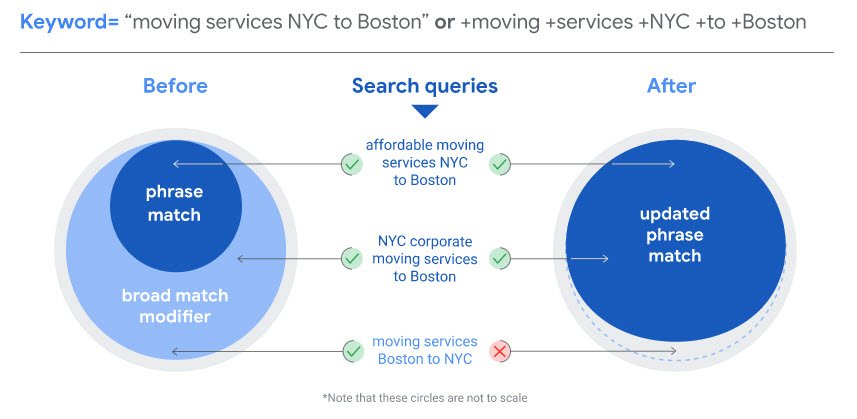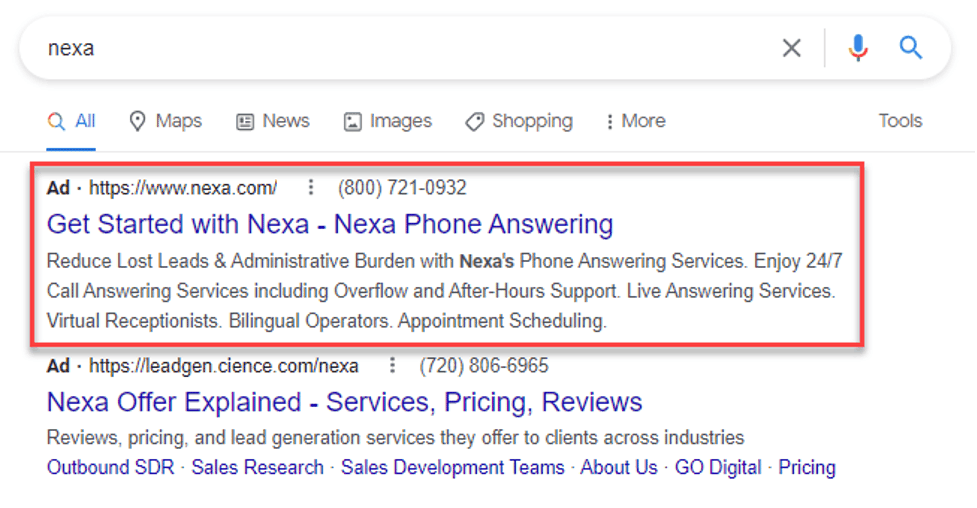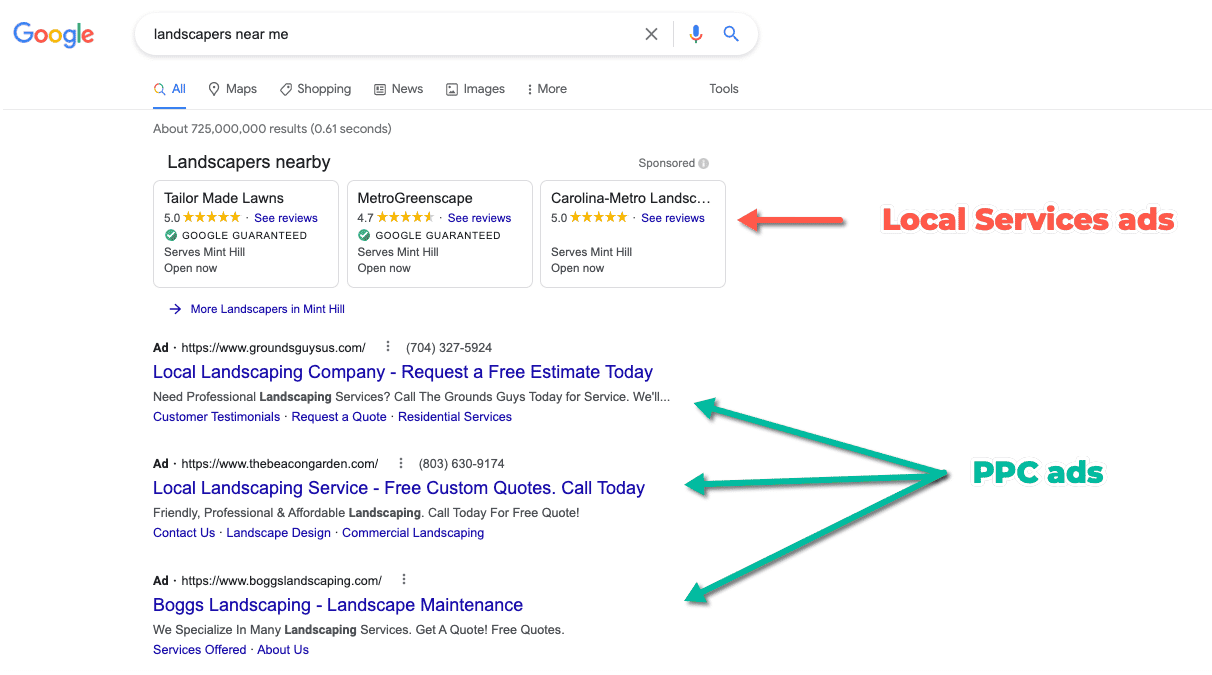Google Is Saying Goodbye to Broad Match Modifier in Google Ads
As a Search Engine Marketer, I know that change is inevitable – like it or not. Sometimes a change in the digital marketing world is minor and comes at us at a manageable pace. Other times change can fly at you like a fastball from Randy Johnson.
On February 4th, 2021, Google pitched the paid ads world a massive change coming to its pay per click platform, Google Ads.
Google has announced that starting in late February, it will begin to roll out changes to its “phrase match” and “broad match modifier” match types that will impact the way pay per click campaigns are optimized and managed. As Google sunsets another match type, we’re here to help you understand what this change really means and breakdown the latest Google Ads updates, including:
- What are the phrase match and broad match modifier match types?
- Why is Google merging the two match types?
- What does this update mean for my business and other local business (and why you should care)?
- 5 tips for successful PPC campaigns during this transitional period.
What Are Phrase Match and Broad Match Modifier Keywords?
In order to understand why we deem this Google update to be quite seismic, you need to first understand what match types are and how they work.
Broad Match
The name of this match type is quite literal. When using broad match keywords, annotated in your ads account by an absence of additional characters such as “ ”, [ ], and +, your ads will target searches that are related to your keyword but may not necessarily contain all components of the keyword. This allows your ads to reach a more “broad” audience but is subject to more irrelevant searches.

Broad Match Modifier (*Being phased out by Google)
Although this match type is being phased out by Google, knowing how it worked is an important factor in understanding this transition and how it impacts search engine marketing in the home services industries.
By adding one or more “+” into a broad match keyword, you are able to tell Google what words must be contained within a search term.
Additional words would still appear in a search term, but designating specific words that had to be in a searcher’s query gave you the ability to have another layer of control to have more relevant searches while still reaching a broader audience.
This match type also gave an increased likelihood for a better clickthrough rate and conversion rates. At the end of the day, while advertisers still had a varying degree of control, it became quite clear in search queries that a searcher’s actual word order is of little importance.

Phrase Match
Over the last 7 years, Google’s phrase match (annotated in Google ads by “quotations” around a keyword) has gone through multiple layers of modification – which one could argue have predicated this most recent update all along.
In 2014, Google introduced the idea of “close variants.” This allowed Google to serve ads to individuals whose searches contained plurals, misspellings, and other close variations of an exact or phrase match keyword. At that time, it mostly impacted the exact match type and allowed phrase match to tell Google that a search query MUST contain the phrase designated in your keyword.
Here’s what the old phrase match looked like:

By 2019, the effects of close variants made a lasting impact on the phrase match we once knew. At this time, the proverbial floodgates were opened, allowing Google to change the word order in the phrase, or incorporate a plural or similar word if the algorithm determined the search intent as close to your original phrase match keyword.
With this implied intent, Google states, “Ads may show on searches that include the meaning of your keyword. The meaning of the keyword can be implied, and user searches can be a more specific form of the meaning.”
While this change wasn’t ideal, we as search engine marketers have learned to adapt to this and the numerous other changes Google tends to throw our way.

Exact Match
Exact match is the most straight-forward of Google match types. This match type (annotated in Google ads by adding [brackets] around a keyword) instructs Google to show ads to prospects whose query has the same meaning or intent as your keyword.
Exact match gives you the ability to target exactly who you want to reach, but at the same time does limit your overall audience.

Blurring the Match Type Lines
Before we move on, it is important to point out how similar the search queries are between some of these match types above – particularly phrase and exact match keywords.
At a glance, you honestly may not even really notice a difference. If you caught on to that, your eyes aren’t deceiving you! With the addition of close variants as discussed above, Google has effectively blurred the lines between match types, pushing us to rely more on their latest algorithmic updates.
Unfortunately, in some cases, this push isn’t necessarily the best strategy for all advertisers and industries.
Why Google Is Expanding Phrase Match to Include Broad Match Modifier
As with every Google update, we need to understand their why in order to effectively prepare our account(s) for the ensuing changes.
In their February 4th press release, Google states:
“To give you more control and better reach, we’re bringing the best of broad match modifier into phrase match. As a result, phrase match will expand to cover additional broad match modifier traffic, while continuing to respect word order when it’s important to the meaning. This makes it easier to reach customers and manage keywords in your account.
With these improvements, you can reach the searches you want just by using phrase match—without worrying about the searches you don’t want. Let’s say you’re a moving company that wants to reach people interested in moving out of New York City. With the updated phrase match, you can reach people looking to move from NYC to Boston, for example, without showing up for people looking to move from Boston to NYC.”
By all indications, Google is quite confident in this upcoming change. In fact, they reiterate their point above in the title of their release – “Making it easier to reach the right customers on Search.” At the heart of this update, Google is making an effort to make life easier for everyone using their ads platform. Top-level down, Google essentially wants to free up time spent on manual search query mining to allow their users to focus on larger business objectives and account optimizations.
So What Does This Change Actually Look Like?
Google gives us the diagram below to explain these changes:

Source: Google
In most cases, this match type merger technically doesn’t change much. There is, however, one aspect of this update that is important to be mindful of.

The red X on this diagram is where many will need to pay close attention to their current keyword strategy. With this update, Google plans to continue its implementation of AI in determining the search intent of the end-user.
In the case above, someone searching for “moving services NYC to Boston” or +moving +services +NYC +to +Boston, may in fact be looking to make the move from New York City to Boston. However, for many companies, someone searching for moving services from Boston to NYC may also be a relevant prospect. Prior to this change, Google would potentially serve this searcher an ad for a moving company located in NYC but willing and able to assist them in moving from Boston to the Big Apple. With the upcoming change, that prospect would be excluded from potential service by nature of Google’s algorithm determining what is and isn’t a relevant search based on intent.
What the Expansion of Phrase Match Means for Local Businesses
And Why You Should Care
While the situation above may be somewhat of an outlier in the big picture, for many in the home services industries, this seemingly minor occurrence to Google, can have seismic implications. For many businesses, service areas can extend well beyond one city, reaching into several counties throughout an area. With Google’s phrase match expansion, search intent will now be left in the hands of an ever-evolving AI system. As we have seen throughout the years of Google’s changes to the platform, their artificial intelligence has grown increasingly stronger. However, it is still difficult for an algorithm to determine every nuance of a prospect’s search query in the way that a human might.
Starting very soon, Google will begin rolling out this change, and advertisers will begin noticing some traffic and cost fluctuations in their accounts. As the world of paid search marketing recalibrates to this new way of life, there will inevitably be some volatility across the board in all industries. Adjusting to change can take time and thankfully Google is giving us some time.
By July 2021, Google plans to have this update launched globally. At that time, advertisers will no longer be able to add additional BMM keywords to their accounts, but the existing BMM keywords will continue to serve under this new structure. Although we are given some time to make these adjustments, Google suggests that marketers begin switching BMM keywords over to phrase match to prepare for the unavoidable end of the broad match modifier match type, which is likely to come at the end of 2021.
5 Tips for a Successful PPC Campaign
To mitigate the impact of this change, we recommend the five following tips:
- Start preparing your account now. Although Google is giving us until July, we don’t have full transparency on how quickly these changes will be implemented, so it is important to act proactively to this announcement.
- Keep an eye on important KPIs and adjust accordingly. Even if your paid search campaigns have been running smoothly, the uncertainties of this update can quickly pivot your account in the wrong direction.
- Spend time drilling down on your search term queries. Find value in understanding your audiences. Knowing their intent and creating keywords accordingly will allow you to get ahead of Google’s continued AI injection.
- Explore some of Google’s automated strategies. As Google rolls out these changes, they do so emphasizing the importance of using their latest AI-driven strategies. The Recommendations section in your account is a handy place to gather ideas, but it is important to understand what exactly Google is suggesting and the potential impact it could have on your account.
- Trust the experts. If you are unsure of how to adjust your account for Google’s upcoming update, you can count on us at Blue Corona to help you decipher all the ensuing changes. With our team of industry experts, we are here to help you and your business grow regardless of what type of pitch Google may throw at us.
Blue Corona Is a Google Premier Partner
Blue Corona is a Google Premier Partner—a distinction awarded to the top 3% of marketing agencies in North America. If your PPC campaigns are struggling to generate clicks, or your cost-per-lead from Google Ads leads are too expensive, send us a message.
Our team manages more than $2 million dollars of Google Ads spend every month on behalf of our clients and has a proven track record of measurably improving the performance of local business’s PPC campaigns:
- Increasing leads and sales from Google Ads
- Optimizing PPC campaigns for lower cost-per-clicks and cost-per-lead
- Differentiating brands online from the competition by capturing more impression share on Google Ads
Contact us online to learn more about how our PPC management services will grow your business.




Recent Comments